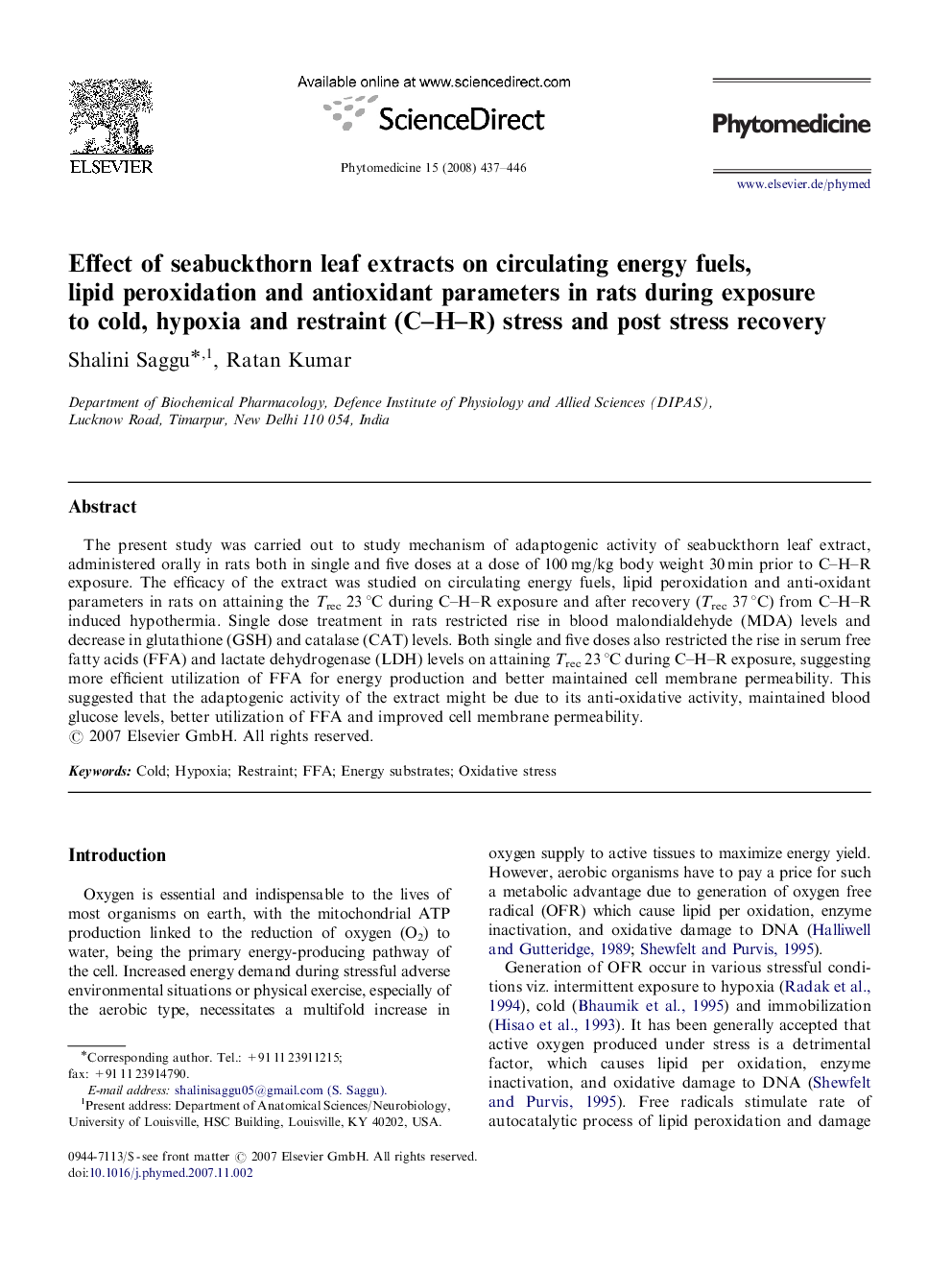| Article ID | Journal | Published Year | Pages | File Type |
|---|---|---|---|---|
| 2497587 | Phytomedicine | 2008 | 10 Pages |
The present study was carried out to study mechanism of adaptogenic activity of seabuckthorn leaf extract, administered orally in rats both in single and five doses at a dose of 100 mg/kg body weight 30 min prior to C–H–R exposure. The efficacy of the extract was studied on circulating energy fuels, lipid peroxidation and anti-oxidant parameters in rats on attaining the Trec 23 °C during C–H–R exposure and after recovery (Trec 37 °C) from C–H–R induced hypothermia. Single dose treatment in rats restricted rise in blood malondialdehyde (MDA) levels and decrease in glutathione (GSH) and catalase (CAT) levels. Both single and five doses also restricted the rise in serum free fatty acids (FFA) and lactate dehydrogenase (LDH) levels on attaining Trec 23 °C during C–H–R exposure, suggesting more efficient utilization of FFA for energy production and better maintained cell membrane permeability. This suggested that the adaptogenic activity of the extract might be due to its anti-oxidative activity, maintained blood glucose levels, better utilization of FFA and improved cell membrane permeability.
